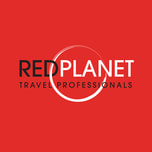Time spent preparing for an interview will certainly pay off, you will be more confident on the day and able to focus on the content of the interview.
First impressions & last impressions at interviews certainly matter. The short interview can end up being a life changing experience for you, so let us help you achieve your goal and help you succeed.
Your research can be done quickly and effectively if you know what information you need. Begin your research by make sure of four things;
Essential Research
Most information can be found on the travel company website and ideally this should be the first source of information. If this is not possible or the website is not informative, your agency consultant should be able to assist you with this.
Company Information
The interviewer may be interested in your compatibility with the company's core values. This information may help you form any questions you may ask at the end of the interview.
First Impressions
Strengths and Weaknesses
Possible Strengths:
Possible Weaknesses:
Potential Questions
Think about some of the questions below and write down your responses. Pick the ones you wouldn't like to be asked first as this will boost your confidence before you walk in the room. You will be surprised how helpful it will be in an interview.
Closing the Interview
Over to you
Asking Questions
This is another opportunity to impress the interviewer as well as discover a little more about the situation. However, do not become the inquisitor; remember, you are being interviewed not the other way around. The interview may have already taken the time to tell you what they know about the company and the job, so pay attention and avoid asking questions that have already been covered.
Consider asking the following if not already covered:
The Salary Questions
It is quite common that salary may not be discussed at first interview but if you are asked the question a good response can be:
At the End
Stay positive. If you are asked about your continued interest in the position, answer in the affirmative, the interviewer is trying to perceive your thoughts. Decisions are always better made when you can stand back from the situation. Should you be offered the position there and then, show your pleasure, say thank you and let them know you will let them know after a little time to contemplate.
There is no harm in establishing what the next step will be. Ask when they plan to move to the next stage of the interview so you can plan your availability.
Your research can be done quickly and effectively if you know what information you need. Begin your research by make sure of four things;
- You have been given a job specification and the role is of interest to you
- You are aware of the salary/package potentially on offer
- The location of the travel organisation is commutable on a daily basis
- You are aware of the days you will be required to work and of the working hours
Essential Research
Most information can be found on the travel company website and ideally this should be the first source of information. If this is not possible or the website is not informative, your agency consultant should be able to assist you with this.
Company Information
- Who owns the travel company - does it have a parent company, how long has it been established for etc.?
- Does the travel company have a mission statement or core values, what are they?
The interviewer may be interested in your compatibility with the company's core values. This information may help you form any questions you may ask at the end of the interview.
First Impressions
- Be on time - arrive 10 minutes early. Plan your journey and allow plenty of time.
- Be polite to the person on reception, they may be the interviewers best friend.
- Dress smartly, go conservative unless told otherwise
- Shake hands properly, a lettuce leaf handshake can be quite disturbing
- Smile when you say hello - it's the best icebreaker. Not smiling will make the interviewer feel uneasy.
- Do accept a drink if offered, water is a good option you may be doing a lot of talking.
- You may be asked to complete an application form. This may be company policy and everyone working at the company will have done it. Fill it in, do not put 'See CV' as this may give the wrong impression.
- Do not book anything immediately after the interview. They may like you and ask you to meet some other people don't miss an opportunity.
- Be Positive and confident
- Avoid running down your current or ex-employers, think positively and explain why a career change is good for you. Look at your achievements and how you would like to develop your skills in the future.
Strengths and Weaknesses
- It is sensible to have 3 or 4 key strengths formulated in advance of the interview. They need to be relevant to the travel job and you must be able to back them up with practical examples.
Possible Strengths:
- Practical
- Positive
- Dedicated
- Enthusiastic
- Task Oriented
- Self-motivated
- Tenacious
- Ambitious
- Resilient
- Decisive
Possible Weaknesses:
- Need to be stretched
- Need to be kept busy
- Expect high standards of others
- I find it hard to say no
- I may be slightly pedantic, but I am aware of this
Potential Questions
Think about some of the questions below and write down your responses. Pick the ones you wouldn't like to be asked first as this will boost your confidence before you walk in the room. You will be surprised how helpful it will be in an interview.
- Tell me something about yourself?
- What are your short and long-range career goals and objectives? How are you preparing yourself to achieve them?
- Why are you interested in this position?
- Based upon your previous experience, what special knowledge/skills do you bring with you that benefit our travel organisation/department?
- What do you consider to be your greatest strengths and weaknesses? What would your past supervisor/manager say are your strengths and weaknesses?
- What travel jobs have you held? Why did you leave?
- Under what type of supervision do you work best?
- Describe the type of relationship that should exist between a supervisor and the team?
- Describe your perfect manager?
- How do you work under pressure? Describe a situation and how you handled it?
- What things are most important to you in a job?
- How would you describe the ideal job for you?
- What two or three accomplishments have given you the most satisfaction?
- Why?
- Are you willing to work evenings, weekends, or overtime?
Closing the Interview
Over to you
Asking Questions
This is another opportunity to impress the interviewer as well as discover a little more about the situation. However, do not become the inquisitor; remember, you are being interviewed not the other way around. The interview may have already taken the time to tell you what they know about the company and the job, so pay attention and avoid asking questions that have already been covered.
Consider asking the following if not already covered:
- How will my performance be assessed?
- What are the prospects for advancement in the long term?
- What do you most enjoy about working for this company?
- Does the travel company promote training?
The Salary Questions
It is quite common that salary may not be discussed at first interview but if you are asked the question a good response can be:
- "I am aware of the salary on offer and I am comfortable with the range described."
- Avoid giving away all of you card straight away if you are asked about your salary let the interviewer know that your current salary is slightly under that on offer for this role.
- If the interview volunteers' information about the salary you can expect, let them know your thoughts and that you are interested in the position. Really avoid negotiating whilst you are in the chair, the interviewer has the upper hand and you may agree terms you may not be comfortable when you have more time to think.
At the End
Stay positive. If you are asked about your continued interest in the position, answer in the affirmative, the interviewer is trying to perceive your thoughts. Decisions are always better made when you can stand back from the situation. Should you be offered the position there and then, show your pleasure, say thank you and let them know you will let them know after a little time to contemplate.
There is no harm in establishing what the next step will be. Ask when they plan to move to the next stage of the interview so you can plan your availability.

